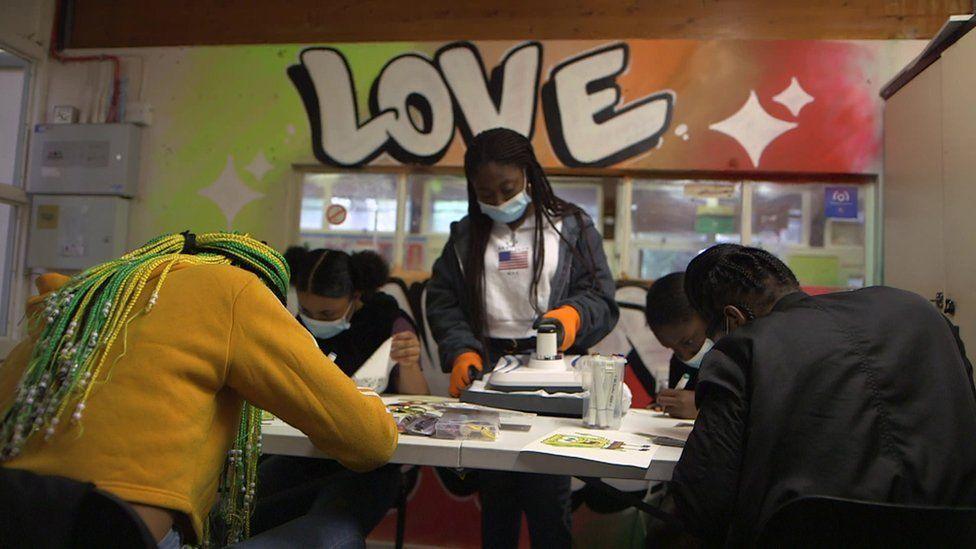Youth club closures increased offending - report

London lost about 30% of its youth clubs between 2010 and 2019
- Published
Youth club closures during the 2010s led to worse GCSE results and increased offending in London, a report has suggested.
About 30% of youth clubs in London closed between 2010 and 2019 as a result of cuts to local authority funding, according to the Institute for Fiscal Studies (IFS).
The impact on educational outcomes as a result of the closures was even more severe for pupils entitled to free school meals, the research found.
Sadiq Khan's office has recently said the mayor was investing in youth workers and mentors, creating up to "500,000 positive opportunities for young people".
City Hall also said “the previous government’s austerity measures” meant 130 youth clubs were closed in London, and that there were now 700 fewer youth workers.
The IFS research compared offending rates and exam results among teenagers who live in an area where all local youth clubs within a 40-minute walk closed with those among teenagers whose nearest youth club stayed open.
Teenagers whose nearest youth club was closed went on to do worse in school, the study concluded.
Young people in London who lost access to a nearby youth club performed worse in their GCSE exams - a decline of roughly half a grade in one subject.
Test scores fell even more for pupils from lower socioeconomic backgrounds - who performed roughly more than a grade worse in one subject.
New youth club 'gives back to next generation'
- Published11 August 2024
Warnings about youth clubs closing
- Published24 August 2020
Youth club keeping kids off streets marks 140 years
- Published2 September 2024
The IFS paper also found those who lost access to a youth club were 14% more likely to engage in criminal activity in the six years following closure.
The offending rate - the proportion of residents aged 10 to 17 who commit a crime each year - went from 14 per 1,000 to 16 per 1,000.
Report author Carmen Villa, PhD student at the University of Warwick and an enrichment student at the IFS, said: "Youth clubs provide support to teenagers that goes beyond recreation, offering mentorship, structured activities such as sports and music, and a safe space for socialising - resources many teens cannot find elsewhere."
'Hugely damaging'
The paper found that in 2009, about 40% of Londoners aged between 11 and 16 attended a youth club at least once a week.
"Overall, the societal costs of increased crime and lost education far outweigh the initial savings from youth club closures," Ms Vila added.
Pepe Di'Iasio, general secretary of the Association of School and College Leaders, said the closure of youth clubs in the past decade had been "hugely damaging for children and young people".
Arooj Shah, chair of the Local Government Association's Children and Young People Board, said: "Youth services provide essential support to young people, providing them with a safe place, trusted relationships, attracting them away from being drawn into negative situations and reducing demand for acute services as a consequence."
She said despite having a statutory duty to provide educational and recreational activities, these services were cut due to less government funding and rising needs elsewhere.
Listen to the best of BBC Radio London on Sounds and follow BBC London on Facebook, external, X, external and Instagram, external. Send your story ideas to hello.bbclondon@bbc.co.uk, external